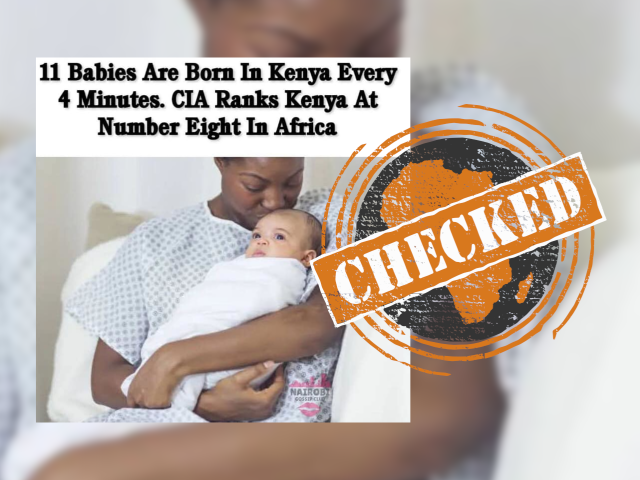This article is more than 5 years old
- Dr Sibongiseni Dhlomo, head of health in KwaZulu-Natal, said teen pregnancy accounted for up to 10% of births in South Africa, but 45% of maternal deaths during childbirth were of teenagers.
- In 2017, 10.9% of recorded births were to mothers aged 10 to 19.
- In the same year, 9.5% of maternal deaths during childbirth were of mothers aged under 20.
Dr Sibongiseni Dhlomo was speaking at a hospital where he visited babies born on New Year's Day. He made a number of claims about teenage pregnancies and maternal deaths in South Africa.
“Teenage pregnancy accounts for about 8 to 10% of all deliveries in the country, which is about a million deliveries per year... but close to 45% of maternal deaths in the country come from this small 10%, because these young people generally delay coming to our clinics.”
The startling numbers were widely reported in the media. We checked if they were accurate.
‘High-level government meeting’
The statistic came from a “high-level government meeting”, Dhlomo’s spokesperson Agiza Hlongwane told Africa Check. He did not elaborate but referred us to official data.
Statistics South Africa, the country’s national statistics agency, has data on the births recorded each year. The data is from the national population register, maintained by the department of home affairs, Stats SA director for health statistics Thabo Molebatsi told Africa Check.
“The age of the mother at birth is captured on the child’s birth notification form,” Molebatsi said.
In 2017, 989,318 births were recorded. Of these, 91,568 were late registrations from 2016 or earlier.
By law, a birth should be recorded in the first 30 days but mothers do not always register the births in the year they occur.
According to Stats SA, 10.9% of births in 2017 were to mothers aged 10 to 19. (Note: While Dhlomo said “teenagers”, Stats SA follows the World Health Organization definition of “adolescent” pregnancies as those of females aged 10 to 19.)
The Saving Mothers Reports are prepared by the department of health’s National Committee for Confidential Enquiry into Maternal Deaths. The committee aims to reduce maternal deaths in South Africa.
The reports define a maternal death as “the death of a woman while pregnant or within 42 days of termination of pregnancy… from any cause related to or aggravated by the pregnancy or its management”.
Prof Robert Pattinson is editor of the report. He shared data for 2017 which showed that women younger than 20 accounted for 9.5% of all maternal deaths nationally.
“The statement by the MEC is not true for 2017 from the Saving Mothers annual report,” Pattinson told Africa Check. “We do not have data for 2018 yet.”
Most deaths (23.4%) were of women aged 30 to 34, followed by those aged 25 to 29 (22.8%).
CORRECTION: The table for births was erroneously duplicated as that for maternal deaths. We have corrected this and apologise for the error.
Further reading:
https://africacheck.org/reports/figure-wrong-11-births-sub-saharan-africa-teen-mothers-not-50/
https://africacheck.org/reports/nigerian-girls-plight-claims-teen-marriage-pregnancy-fact-checked/
https://africacheck.org/spot-check/twice-as-many-safe-births-in-kenyan-health-facilities-still-no-way-to-verify-claim/



Add new comment